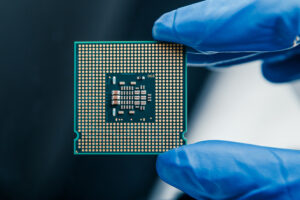4DMedical (ASX: 4DX) Jumps 10% as Stanford Deal Validates Commercial Scale Opportunity

4DMedical (ASX: 4DX) announced a major commercial milestone today, with Stanford University becoming the first US academic medical centre to adopt its CT:VQ lung imaging platform under a commercial agreement less than two months after receiving FDA clearance. This development is particularly significant for investors, as it provides strong third-party validation from one of the world’s leading medical research institutions.
The agreement allows Stanford to analyse up to 20,000 scans per year using 4DMedical’s suite of AI-powered imaging solutions, establishing a recurring revenue base and reinforcing the company’s transition from development to commercial scale.
What are the Best ASX Biotech Stocks to invest in right now?
Check our buy/sell tips
4DMedical Expands AstraZeneca Partnership, Adding 38,000 Annual Scans Across Brazil
In parallel, 4DMedical and AstraZeneca have expanded their lung health screening partnership across an additional five hospitals, adding approximately 38,000 CT scans annually. This expansion demonstrates the scalability of 4DMedical’s technology in large population health initiatives and extends its geographic reach across key healthcare markets. Collectively, these agreements strengthen the company’s commercial footprint in the United States while building momentum for international growth in emerging regions.
4DMedical’s Stanford and AstraZeneca Deals Could Generate USD 11–17 Million in Annual Recurring Revenue
For investors assessing the commercial impact of this development, the agreement with Stanford University operates under a pay-per-scan model, allowing 4DMedical to generate direct revenue for each scan performed using its CT:VQ platform. Based on US reimbursement frameworks, the Centers for Medicare & Medicaid Services (CMS) currently reimburses approximately USD 650 per scan under the Outpatient Prospective Payment System (OPPS), in addition to the standard chest CT fee of USD 400–500, bringing the total reimbursement range to roughly USD 1,050–1,150 per procedure which is comparable to traditional nuclear V/Q scans.
According to 4DMedical’s 2023 investor materials, the company also holds a pre-negotiated pricing structure with the NASA SEWP program for U.S. Department of Defense and Veterans Affairs contracts, set at USD 171 per scan. This figure provides a conservative baseline for commercial pricing assumptions. Applying this model to Stanford’s potential annual volume of up to 20,000 scans, and incorporating additional agreements such as the AstraZeneca lung screening expansion (an estimated 38,000 scans annually), total scan volume could reach around 58,000 per year.
Assuming an average realised price of USD 200–300 per scan, reflecting a 15–75 percent premium to the SEWP benchmark, 4DMedical could generate annual revenue in the range of USD 11.6 million to USD 17.4 million from these combined agreements. While still early in its commercial rollout, this provides a tangible framework for recurring revenue growth as adoption expands across U.S. and international healthcare networks.
Blog Categories
Get the Latest Insider Trades on ASX!
Recent Posts
ReadyTech (ASX:RDY) Down 57%, Where’s the Operating Leverage?
ReadyTech Soft Half Keeps Pressure on the Stock ReadyTech has had a rough 12 months. The stock has fallen from…
Adisyn (ASX:AI1) Graphene Makes Drones Harder to Detect
Big Step in Drone Stealth With Graphene Adisyn (ASX:AI1) has successfully completed an early proof of concept demonstrating that graphene…
DroneShield (ASX:DRO) $21.7m Europe Deal Lands One Day After Results
Earnings Beat, Then a $21.7m Contract, Momentum Stays Hot DroneShield appears to have timed this very well, announcing a new…



